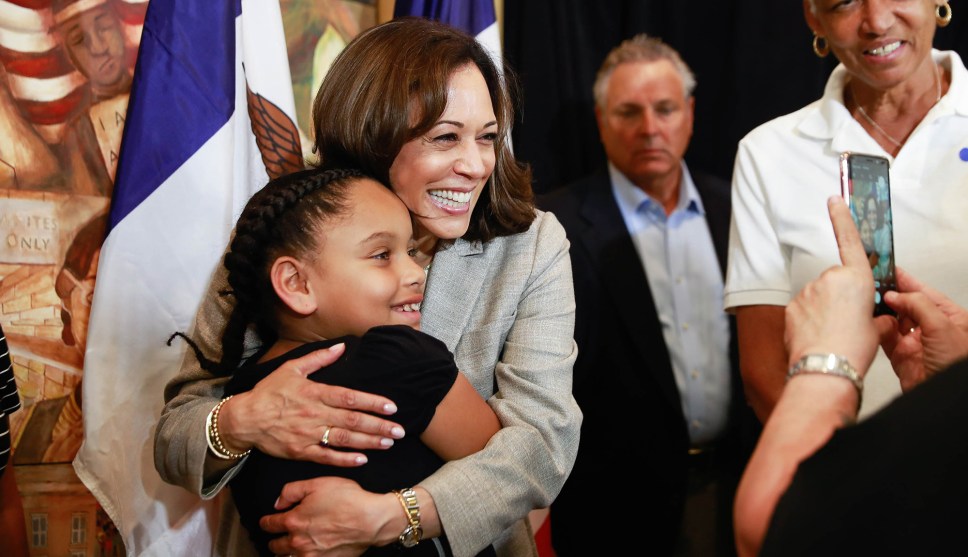
Jeremy Hogan/SOPA Images via ZUMA
Jim Geraghty thinks that Kamala Harris is vulnerable:
The soft underbelly of the Harris campaign is her flip-flops and the general sense that she’ll say whatever she needs to say to please the audience in front of her. She hit Joe Biden for opposing a federal mandate for bussing but later said she herself wouldn’t support a federal mandate. In a January town hall, she said she supported eliminating private insurance but then backtracked a few days later. At the first debate, she raised her hand indicating she would eliminate private insurance, then said afterwards she misunderstood the question. She said she wouldn’t raise middle-class taxes to pay for Medicare for All, a stance that Jeff Weaver of the Sanders campaign amounts to “unicorns and magic wands.”
She’s flipped positions on some parts of immigration enforcement policy as well. She now says she supports independent investigations of police shootings, when she opposed them as a Senate candidate in 2016.
I don’t think Geraghty is wrong, precisely, but I do think he’s drawing the wrong conclusion here. As much as we all hate to believe it, vagueness and pandering on the campaign trail are generally helpful. It certainly helped Trump, who flip-flopped on so many things it was hard to tell if he was even the same person as he was a few years before. It helped Bill Clinton and it helped George Bush. Conversely, candidates like Bernie Sanders and Elizabeth Warren are the ones who will probably get into trouble eventually for being too stubborn to water down proposals that turn out to be albatrosses.
There’s a case to be made that this is fine: as president we want someone who’s flexible and willing to make deals, not a rigid ideologue. There’s an equally obvious case to be made that it shows a lack of firm character. Take your pick. But as long as it doesn’t get out of hand, I don’t think there’s much of a case to be made that it’s an electoral weakness. In fact, it’s practically a great American tradition.










